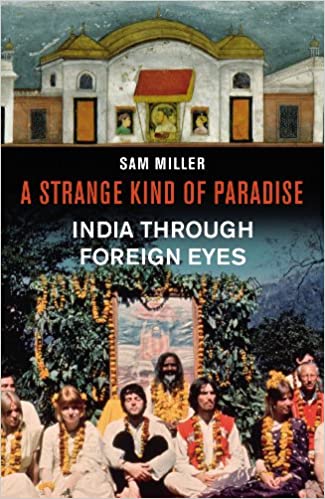Sam Miller, India Through Foreign Eyes (2014)
Is this a travel book or a history? Both and neither, to its detriment. It purports to be a selective telling of the history of foreign (not, thankfully, always Western) descriptions of India, but Miller injects enough of his own story that it’s also about his own experiences and relationships in India that the book tilts out of balance, feeling self-indulgent in a way it might not have if it had just been a story about Sam Miller with some history thrown in.
Part of the trouble is with the personal story Miller has to tell, and with the way he tells it. He starts off by saying he’s married to an Indian woman and has lived for many years in India, which serves as a kind of preemptive defense should anyone think him too English. This is fine as far as it goes, but gradually little details slip out that show that this graduate of Cambridge and SOAS is something other than an ordinary traveler who fell in love. He more or less waltzes into a job as the BBC’s lead India correspondent — a position he takes first as a substitute for the well known travel writer Mark Tulley, who’s out of town when a crisis erupts — and later we discover that Miller is living in the same Delhi apartment where William Dalrymple wrote City of Djinns. No wonder he got blurbed by Dalrymple! No one is this well connected by sheer accident, and this degree of privilege, hidden but hinted at so you don’t miss it, makes Miller’s frequent protestations of ordinariness and commitment to Indian feel strained and awkward.
There were, here and there, some interesting nuggets that I’d overlooked, like the discovery that Steve Jobs, influenced by Be Here Now, quit his Atari job and wandered around Northern India with holy men for a while. For the most part, though, India Through Foreign Eyes felt like a competently edited summary of various books by John Keay and others, with a bit of travelogue thrown in. It was perhaps most helpful in pointing to the kind of travel book I don’t want to write: one where the erudition feels like summary rather than synthesis, and where the travel feels like interlude rather than adventure.

